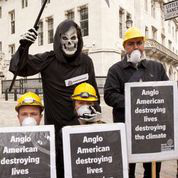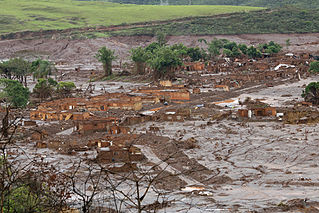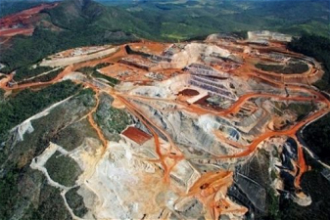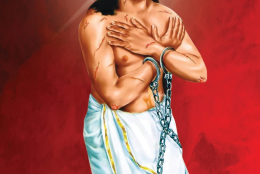Religious activists hold mining companies to account

Religious activists have become increasingly important in challenging large-scale destructive mining practices around the world. Last week they were protesting prominently outside the annual general shareholder meetings of Rio Tinto and Anglo-American. They supported a representative of Mongolian herders who claimed that a $5bn (£3.3bn) expansion of Rio Tinto’s Oyu Tolgoi copper and gold mine in the Gobi desert threatens the fresh water supply of hundreds of nomadic people and the area's unique ecology. They also supported Peter Bailey, representing the South African National Union of Mineworkers at Anglo-American’s AGM, who complained about the lack of company responsibility for the sickness and suffering of thousands of former mineworkers, dying a slow death from silicosis as a result of dust exposure in mines.
Catholic ex-seminarian Richard Solly heads the London Mining Network, which focuses on multinational mining companies headquartered in London and trading on the London Stock Exchange. It highlights the activities of those companies which damage ecosystems, displace communities and disrupt local economies around the world. Last week, Solly and religious groups were among those protesting. And they have had successes in the past. In 2010, the Church of England pulled its investments from the London-based global mining company Vedanta Resources based on being made aware of its record in India.
Christian groups active in the London Mining Network include the Columban Missionary Society and the Ecumenical Council for Corporate Responsibility. The network has developed from a movement originally born in London more than 30 years ago to keep an eye on Rio Tinto operations worldwide; now it focuses on all London-based mining operations.
Religious groups in the US and England have introduced shareholder resolutions and otherwise demanded mining companies adopt more responsible practices regarding environmental impacts, labour issues and effects on nearby residents. Ecumenical and interfaith organisations have also been central to the larger movement for socially responsible investing.
“We have a duty to put pressure on these companies,” said Solly. He notes that “there are all manner of other companies” on the London Stock Exchange that raise concerns about human rights abuses - including weapons and petroleum industries - “but mining has been less visible than other sectors,” Solly said, “because there’s no interaction between the company and the consumer like there is with oil".
At Anglo American’s AGM on 19 April, a visitor from Colombia complained bitterly about the Cerrejon open pit coal mine in Colombia, which exports nearly all its coal, including to England, for power plants. Colombian local leader Julio Gomez explained that the mine has displaced villages, and locals feel they are getting little economic benefit and worry about air pollution and contaminated water. Additionally, the Colombian miners, who recently went on strike for a month, say they work in dangerous conditions for low pay.
Solly said that most religious people in global mining activism got involved after working in developing countries directly impacted by mining. He himself became concerned about the extractive industries while working with indigenous people affected by the oil industry and logging in Alberta, Canada. He has also visited the Cerrejon mine in Colombia and was involved in efforts to save the village of Tabaco, which was eventually engulfed by the Cerrejon mine.
In many cases, mines impact areas are held sacred by indigenous groups, be they Native Alaskans near the proposed Anglo American-Rio Tinto Pebble Mine, tribal West Papuans near the Freeport McMoran-Rio Tinto Grasberg mine or Subannen tribal people protesting gold mining in the Southern Philippine island of Mindanao. Columban missionaries in Mindanao have long highlighted their experience of mining conflicts and the human and environmental abuses associated with mining.
“The mining work I do is a form of solidarity with the oppressed and with the suffering earth,” Solly said. “I do it because discipleship of Christ, as I understand it, demands that we exercise such solidarity.”
For more information see: http://londonminingnetwork.org/


















